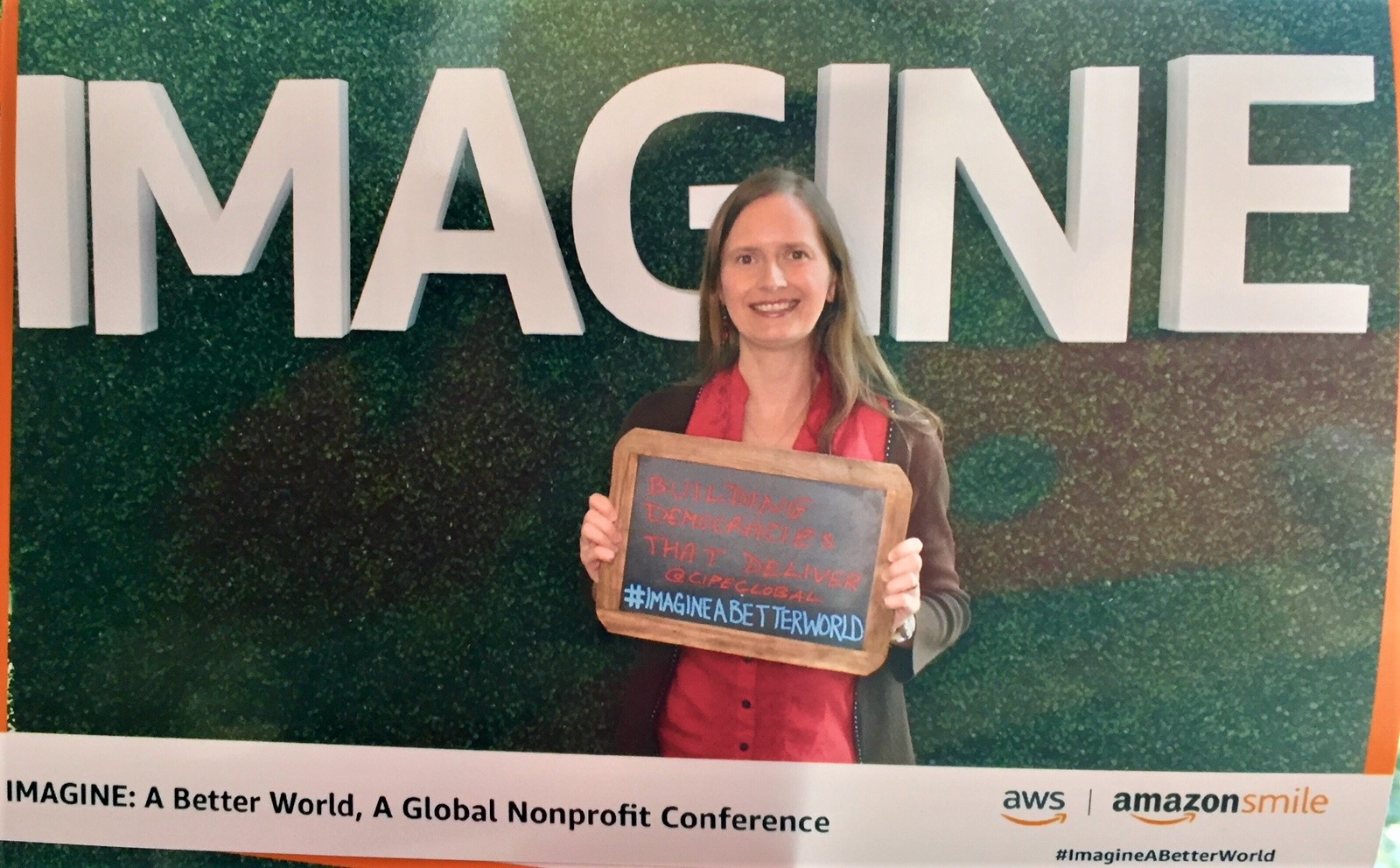
In many ways, nonprofits are left out of the global debate on the future of the digital economy. Nonprofits are not the ones creating the cutting-edge technology that drives the digital transformation of countries around the world. Faced with a scarcity of time and resources, most nonprofits also do not see it as a priority to analyze how technology impacts the communities or constituents they are working so hard to serve. Having a singular focus on their mission is a good thing, whether it is reducing poverty, improving education, or – in the case of chambers of commerce and business associations – representing the needs and concerns of member businesses. However, when day-to-day work obscures the significance of larger trends, even the most dedicated organizations miss out.
I recently had a chance to attend IMAGINE: A Better World, A Global Nonprofit Conference, hosted by Amazon Web Services (AWS) in Seattle, WA. The role of technology in enhancing the capabilities and impact of the nonprofit sector was the main theme, with expert speakers sharing insights on the latest trends in digital marketing, fundraising, and information and communication technology (ICT) tools. Teresa Carlson, Vice President of AWS Worldwide Public Sector, captured the key message of the event in her keynote speech. “Tech is not always thought about as an impact-maker,” she said. “Imagine how tech drives impact and make it real.” The challenge for nonprofits around the world is indeed to make digital economy an indispensable part of their strategy.
Global connectivity is growing, and ample online services that can boost impact and improve organizational efficiency are becoming more and more affordable. These developments present an important opportunity for nonprofits everywhere – but especially in emerging markets – to ride the wave of the digital revolution. Cloud computing, data analytics, database services, and other ICT tools make it easier to streamline the workflow, manage member or beneficiary relationships, and share information. Social media and the ever-increasing internet bandwidth make it easier to reach new audiences and donors with powerful messages amplified by images and videos that illustrate the value of the organization’s efforts. This is an unprecedented opportunity for nonprofits to highlight and multiply their impact.
At the same time, any nonprofit with an online presence must also be cognizant of potential dangers in cyberspace. To manage risks such as hacking, distributed denial of service, or ransomware, nonprofits must think about cybersecurity with the seriousness and urgency it deserves. All too often, in the multitude of demands on an organization’s limited resources, cybersecurity is pushed down the priority list. Similarly, not enough attention is paid to compliance with new data privacy laws such as the European Union’s General Data Protection Regulation (GDPR). Neglecting cybersecurity may prove to be a costly mistake that undermines the most valuable asset any nonprofit has: its reputation.
For chambers of commerce and business associations in particular, the challenge – and the opportunity – is not just to capitalize on existing tech solutions to enhance their operations but to go a step further. Business organizations need to represent their members in policy discussions that shape legal and regulatory frameworks governing this new realm of the economy the way they engage on many other issues that impact enterprise ecosystems. The time is now.
At the upcoming annual conference of the Aspen Network of Development Entrepreneurs (ANDE), on October 2-4 in Tarrytown, NY, CIPE and the New Markets Lab will launch a new resource to facilitate such crucial multi-stakeholder policy conversations in diverse country contexts. This resource – Digital Economy Enabling Environment Guide – focuses on important policy issues such as consumer protection and e-payments that are building blocks of the digital economy. The Guide also explains key regulatory considerations and helps policymakers, the private sector, and other stakeholders reach a shared understanding of these often complex topics. Stay tuned!
Anna Kompanek is the Director for Global Programs at the Center for International Private Enterprise (CIPE).
Published Date: September 07, 2018
